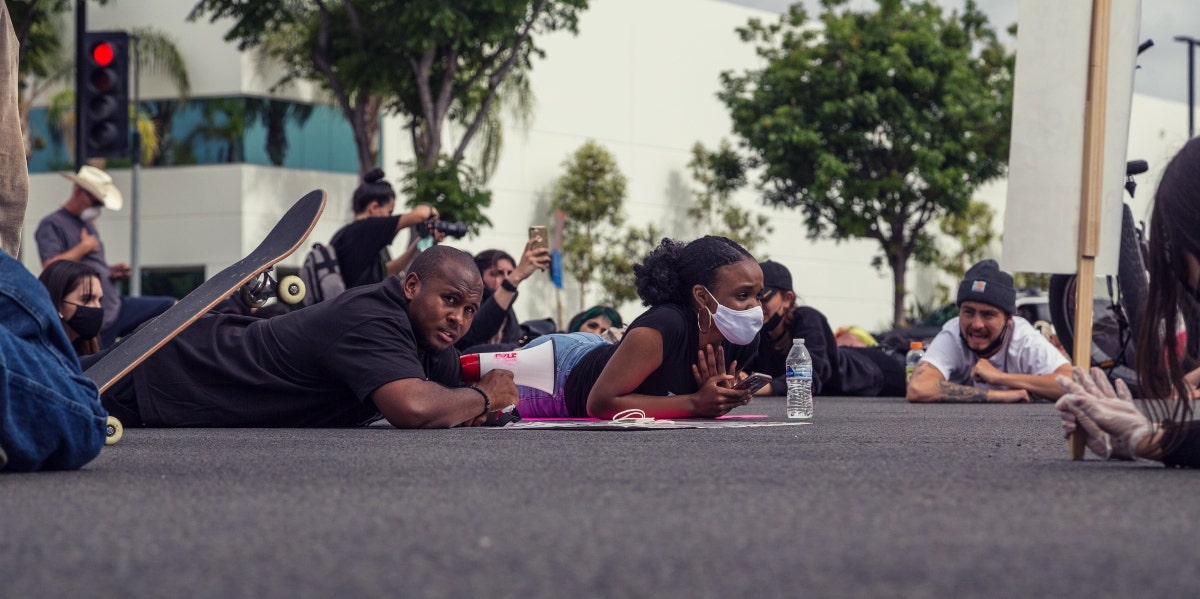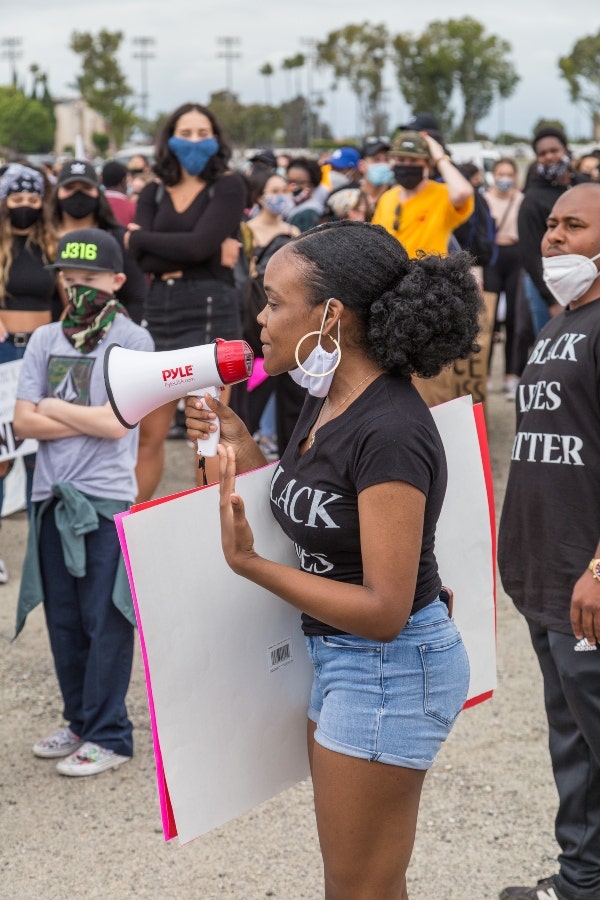On Being A Black Woman In America
Say her name.
 courtesy of the author
courtesy of the author Being a Black woman is phenomenal.
Black women have been leaders in many prevalent social justice movements, have pioneered many aspects of the fashion and music industry, and set trends that are passed from generation to generation.
Black women exude intelligence, class, and grace while fighting for what they know is right. To be a Black woman is to be gifted, talented and delightful to say the least.
While being a Black woman is all of these amazing things, to be a Black woman is to also be afraid, exhausted, and confused.
Because of the many strides that Black women have made, there is a false, dangerous notion that Black women do not fear anything. Realistically, we do.
As Black women, it is terrifying to hear about the murders of young Black men and women. “That could have been my child” runs through our mind as we wonder what the future will bring for Black youth, hoping they do not have to fight the same battles we are currently fighting.
The uneasiness that we feel in the pit of our stomach every time our husbands, boyfriends, fathers, brothers, and uncles leave the house to go about their daily lives never settles. “I hope the police do not stop him today,” “I hope he makes it to his destination and back home safely,” and “Maybe I should go with him to make sure nothing happens,” are just a few of many thoughts that run through our minds when we think about the Black men in our lives.
Black women are judged for every little thing that we do. From the way we wear our hair to the way that we choose to express ourselves, we are constantly policed. Black women are loved a lot more when we are sitting in silence instead of spreading knowledge and facilitating change the best way we know how.
Once a Black woman decides to use her voice, she is called aggressive, loud, “extra” or is told she is doing the most. When a Black woman sits silently, she is "wifey," a great example, and easy to deal with. It is almost as if nobody wants us to talk at all unless we are coming to their defense or we are saying something that they can steal or benefit from.
Our hair is our crown, but people refuse to stop petting us as if we are animals in a zoo or asking us if it is our “real hair” because apparently, once a Black woman has hair that is longer than five inches, it is automatically fake. Our box braids are described as “ghetto” or “ratchet,” but we are also told that we can’t wear our natural hair because it is “unkempt.”
Last year, Senator Holly J. Michelle passed the Creating a Respectful and Open World for Natural hair Act, or, the C.R.O.W.N Act. The C.R.O.W.N Act protects Black people, especially Black women, from workplace discrimination based on our hair. This means that up until 2019, jobs had the right to tell Black women that we were not allowed to wear the hair that grows out of our head to work.
For this reason, Black women have been pressured into finding styles that work for us that our employers will also find appropriate. On every level, this is wrong. While we are forced to wear hairstyles such as box braids, weaves, wigs, crochet hair etc., non-black people wear these styles and get praised for it. Celebrities such as Bhad Bhabie, Kim Kardashian, and Gwen Stefani, just to name a few, have participated in and contributed to cultural appropriation.
In 1962, Malcolm X said, “The most disrespected person in America is the black woman. The most unprotected person in America is the black woman. The most neglected person in America is the black woman.” Almost six decades later, this still reigns true.
Although Black women are constantly at the front-lines protesting and protecting Black men, who is around when Black women need to be fought for?
Breonna Taylor is one of the names at the center of recent protests, but social media has noticed that her death is slowly but surely falling into the cracks. Taylor was killed in the comfort of her own home while asleep during a police raid. The police unnecessarily shot Taylor approximately 8 times, unreasonably.
Many have pointed out that these protests rarely ever include and fight for the protection of black women. Women such as Sandra Bland, Atatiana Jefferson, Yvette Smith, Aiyana Stanley-Jones, Tanisha Anderson, Yolanda Thomas, Sherida Davis, Pamela Turner, Korryn Gains, Breonna Taylor, Shantel Jefferson and countless other black women have been murdered by the police.

Photo courtesy of the author
Although Black men are more likely to be killed by the police and have been on larger scales, it is crucial that we fight for Black women as hard as we fight for black men. It is imperative that we tell black women’s stories and demand justice to ensure that their deaths will not be in vain.
The #SayHerName movement was coined by Kimberlé Crenshaw to ensure that women’s stories are being told and they are being fought for. The movement is being used within the Black Lives Matter movement to make sure that the current protests do not end once George Floyd and Ahmaud Arbery are given the justice they deserve. Black women are making sure that we are heard and protected as well. We are making sure that these protests do not end with Breonna Taylor being left behind.
Another incredible aspect of being a black woman is that we stand with each other. Despite the hardships that we are faced with in America, we can always count on our sisters to hold us up high and fight for us if nobody else will.
Sarah Jones-Smith enjoys writing about injustices against the black community in America and the lives of black women. She is a black woman. That is her superpower.
